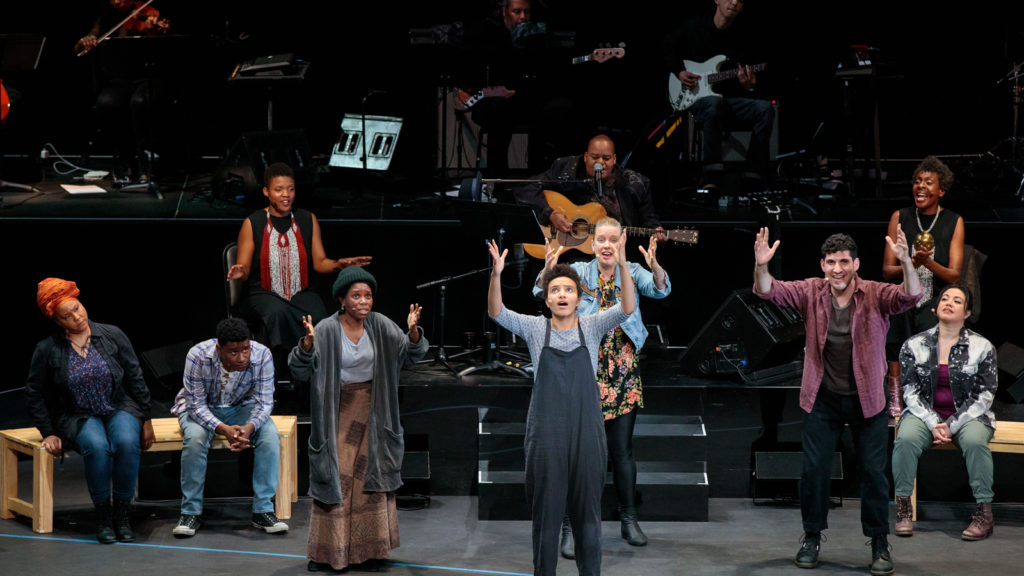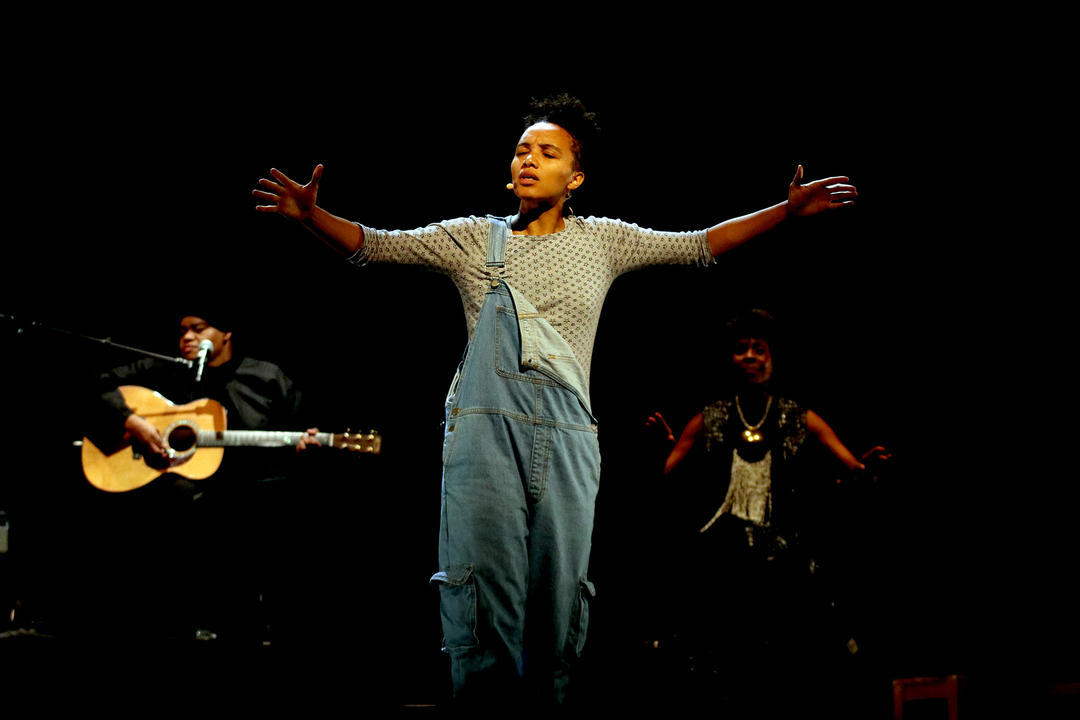The science-fiction writer Octavia E. Butler, who died in 2006 at the age of fifty-eight, is experiencing a posthumous renaissance. In 2021, the Library of America published its first volume of her collected works; she then graced the covers of Bookforum and New York magazine. Last year, FX/Hulu adapted her novel Kindred into a miniseries.
Perhaps one reason behind Butler’s resurgence is that the future she envisioned increasingly resembles our present. Her Parable series – comprised of the novels Parable of the Sower and Parable of the Talents – is set in the not-too-distant year of 2024 and depicts an America besieged by climate change, economic inequality, and corporate greed. Sound familiar?
This past weekend, audiences at the Krannert Center for the Performing Arts experienced Toshi Reagon’s and Bernice Johnson Reagon’s musical adaptation of Butler’s Parable of the Sower. (The creative team are daughter and mother, respectively.) The Reagons’ characterize their adaptation as an opera: scenes of dialogue are almost entirely jettisoned, with the story told mostly through song. To complicate matters, Parable foregoes narrative specificity – this isn’t the kind of show where you learn every character’s name – in favor of communicating the novel’s themes in a series of broad strokes: people come together, people leave, things go from bad to worse, people persevere.
Yet, what Parable lacks in detailed plotting it more than makes up for in music. The Reagons’ sumptuous score ranges across disparate genres, from blues and gospel to folk and even icy modernism. They possess an ingenious gift for melody, with each song catchier than its predecessor – an astounding feat considering the show delivers two hours of nonstop music.

Lyrically, the Reagons approach Butler’s novels like scripture, isolating phrases that, when sung to music, achieve a poetic resonance: “the only lasting truth is change,” “your God stopped being my God,” “drowning people sometimes fight their rescuers.” This religious quality is extended to Parable’s sparse aesthetic, which co-directors Signe Harriday and Eric Ting have fashioned to resemble a kind of secular church pageant: musicians in the back, singers and actors up front, minimal props and costumes, with Toshi, seated centerstage with an acoustic guitar, equal parts bandleader and preacher.
The performers’ movements occasionally devolve into hokey staging – at one point, two actors walk backwards toward one another and (what else) bump into each other. But Harriday and Ting craft some impressive moments. During one song, the actors form a line across the stage to wait and receive their daily ration of water, doled out by an Amazon-like corporate behemoth. Towards the end of the production, a black curtain falls and reveals a large triptych of abstract paintings, reminiscent of the artist Mark Bradford’s work, whose florescent colors appear to glow more brightly over time.
But focusing on Parable’s tableaus is like walking away from a thrilling concert obsessing over the lights. So many of the Reagons’ songs verge on rhapsody that I felt compelled to close my eyes on numerous occasions so I could better parse the different singers’ voices gelled together in a waxy harmony, or groove in my chair to a swampy, blues-inflected beat. (Shockingly, a recorded version of the music does not seem to be available.)
The Reagons’ adaptation of Parable has been touring the globe since 2017. (An appreciative Toshi thanked the Krannert Center for their commitment to programming the show, long delayed by the pandemic.) I would be disappointed if this concert staging was the final incarnation of the work. If the creative team can more clearly incorporate the novel’s story and make the painful decision to cut some of the songs, there’s no reason why this “opera” cannot thrive within the more traditional framework of a musical.
As Toshi noted at the top of the show, Butler’s brand of science-fiction was deeply rooted in the present. Instead of pondering what if she asked, “If we do this, what’s next?” Maybe I’m naïve, but I could see Parable opening in New York as a full-fledged production sometime in the future. I’ll turn the question back on the Reagons, Harriday, and Ting: what’s next?








